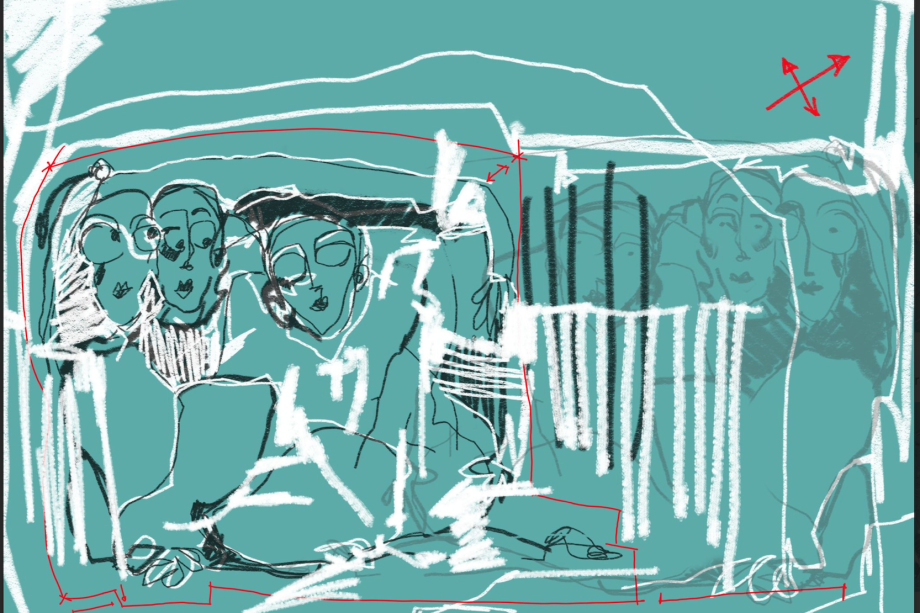
Despair breeds hope – delving into language and the future
I gave my life to hope
– Ahmed Fouad Qaoud
The language used by Palestinian writers has sparked curiosity, as it is evident in the contemporary literary works of a diverse range of writers from different genres. These writers were brought together by Magazine 281for dialogues, writing, sharing, and publication, resulting in a rich collection of individual voices addressing the collective.
The young Palestinian writers' language originates from their reflections on the self, which has clashed, interacted, and found itself alone with many questions. They search for meaning in a language born into a biased world of ever-changing binaries, such as love versus hatred, expansion and acceptance versus denial, life versus death, action versus inaction, memory versus forgetfulness, resilience versus emigration and displacement, persistence versus surrender, and hope versus despair.
The idea of hope invites contemplation over its presence, connotations, and meaning in people's imagination, memory, heritage, and daily life. "How crushing would life have been without a break of hope," wrote al-Tughra'i. The renowned Arab poet viewed hope as a way to expand the bronchi to breathe better. Mahmoud Darwish weighed in, saying, “We do what prisoners do, What the unemployed do: We nurture hope." For the celebrated Palestinian poet, hope could be nurtured, strengthened, chased after, and begged for. Syrian playwright Saadallah Wannous saw hope as an inevitable destiny or a formula for understanding life as it takes various turns.
The presence of hope, the context in which it is used, its various meanings, and the associated connotations create a desire to delve into the question of hope, which is essentially an open question about the future. This prompted us to create a joint project with PEN/Opp after a series of dialogues and discussions with editor-in-chief Kholod Saghir. A group of writers from different genres were commissioned to delve into the question of hope, its manifestations, and the way in which it is addressed in various works of fiction and nonfiction. The writers were also tasked with exploring how hope affects people's daily lives and lives in general, particularly those of writers and creatives from Palestine.
The participants in this issue looked at the subject through various lenses, including poetry by Nidal Al-Fawwi, Hala Shrouf, Anis Ghanima, Muhammad al-Zaqzouq, Hamed Ashour, Hind Joudeh, and Amir Hamad, and a collection of letters written by Mahmoud al-Shaer. The issue examines the poetry works of post-division Palestinian youths through Asmaa al-Ghoul's Rubble of the youth: Young Gazan writers on death and despair. The issue also explores the various meanings of hope in Palestine, the language writers use, as well as the lived and daily experiences through Ihab al-Gharabawi's Famous paintings from the exhibition of Palestinian concern and Donia Al Amal Ismail's Hope is part of the remaining ammunition.
Additionally, the issue includes an article on hope in Palestinian children's literature by Fatina al-Gamal, entitled "The Bridge between Poetry and Children's Literature - Hope is the Virgin of Despair," and an article on the works of artist Fathy Ghabin by Hashem Hallis, titled "Inevitable Dualities."
We hope that these contributions will be successful in restoring part of the desired hope in this world where signs of it are diminishing by the day.
1 28 is a literary and cultural magazine that is published in Arabic and covers various cultural topics. The magazine is managed and edited by a group of young Palestinian writers from both Gaza and abroad. While the name of the magazine, 28, represents the number of letters in the Arabic alphabet, the magazine aims to serve as a cultural foundation for young writers and creators, while also supporting their creative endeavors. As a platform, 28 offers numerous opportunities for young artists and writers to showcase their creative output and express themselves freely without any censorship authority. The magazine seeks to encourage young writers to promote the values of freedom and democracy and engage with their Palestinian and Arab communities through the publication of both print and electronic issues. In addition to publishing, the magazine also sponsors various activities such as literary evenings, panel discussions, art exhibitions, musical and artistic concerts, and film screenings. These events are organized by the 28 team at the headquarters and space of the magazine (Gallery) in cooperation with local and international civil society institutions. The magazine's creation was particularly necessary after the political and cultural blockade that the Gaza Strip has been under since 2007, and it aims to provide a platform for Palestinian writers to interact with their community and promote cultural dialogue.

